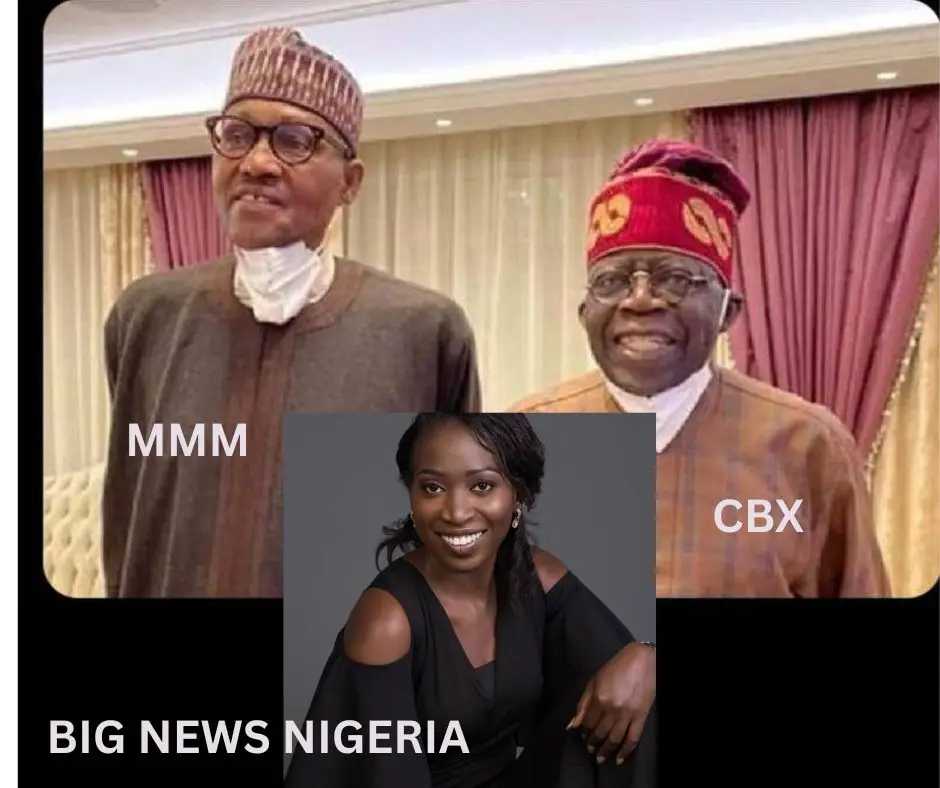Share the post "Opinion: The North and Nigeria’s Addiction to Power – Mary Maha Writes"
In a powerful piece shared via social media, commentator and activist Mary Maha has reignited national discourse on power rotation, political loyalty, and northern dominance in Nigerian politics. Her article, titled “The North and Addiction to Power”, traces the complex history of power struggles from 2003 to the approaching 2027 general elections, questioning long-held assumptions about political supremacy and fairness.

Buhari’s Rise and Southern Marginalization
Maha began by reflecting on former President Muhammadu Buhari’s political journey, recalling his initial failed attempt to take power from southern president Olusegun Obasanjo in 2003, despite having northern support. In contrast, Obasanjo secured victory without the backing of the north, a feat Mary described as both bold and significant.
Fast forward to 2015, Buhari returned—this time successfully—defeating Goodluck Jonathan (GEJ) with overwhelming northern support. Maha questioned the logic behind the north’s rejection of GEJ despite his pro-north policies and inclusive appointments, suggesting that regional loyalty consistently trumped merit and fairness.
The Wike Betrayal and PDP’s Unraveling
The writer also delved into the People’s Democratic Party (PDP) crisis, pointing fingers at what she called ethnic betrayal. According to her, Nyesom Wike, who held the party together during turbulent times and supported Sokoto Governor Aminu Tambuwal, was blindsided by the north’s refusal to honour the gentleman agreement on power rotation. Instead, loyalty was thrown aside for what Maha hints may have been ethnic or religious allegiance.
“Wike understood the game,” she wrote, “and knew that sometimes, it’s necessary to bring down the house and rebuild it.”
Tinubu’s Battle Within APC and the 2023 Muslim-Muslim Ticket
She also recounted President Bola Tinubu’s struggle during the APC primaries, where he fought hard to claim the ticket over Senate President Ahmed Lawan, allegedly against prior agreements. Maha criticized the Muslim-Muslim ticket, arguing that Tinubu was compelled by northern pressure to pick a northern Muslim running mate—a move she believes compromised the spirit of national unity and fairness.
“On a normal day, Tinubu could have won like OBJ,” she stated, “but because of Atiku’s northern support base and Peter Obi’s influence in the south and parts of the north, he had to bend.”
Peter Obi and the Rise of a New Movement
Maha hailed Peter Obi for what she described as a “mental emancipation” of Nigerian voters. According to her, Obi’s campaign showed Nigerians that it was possible to contest elections credibly without being backed by political godfathers or regional strongmen.
“Imagine he never left,” she wrote. “We would have continued to believe the south is only good for a VP slot.”
She praised the Obidient Movement for reshaping electoral expectations and noted how even PDP recently cited Obi as a reference point for grassroots support.
2027 and the Reawakening of Regional Ambition
Looking ahead to 2027, Maha warned that the north is already regrouping and angling to reclaim the presidency, suggesting that they are unwilling to support a southern candidate again. She questioned the hypocrisy of a region that reintegrates terrorists while resisting genuine reform and equality.
She argued that injustice continues to be a barrier to national unity and issued a call to southern Nigerians to resist becoming second-class citizens in their own country.
Security First, Everything Else Can Wait
Though not a Tinubu loyalist, Maha admitted she may begin to “stand on the mandate” if it means enforcing fairness in power-sharing. Her only plea: “President Tinubu, please fix the security situation. Let our farmers return to their land without fear.”
No to Another Northern Presidency
In a strong closing remark, she criticized those promoting the idea that Peter Obi should deputize Atiku Abubakar in 2027, calling it a regression of the very ideals Obi stands for.
“If after reading this, you still think so,” she wrote, “you’re irredeemable.”
Maha’s commentary is quickly gaining traction online as Nigerians continue to debate power rotation, regional equity, and the future of democracy ahead of 2027.
Share the post "Opinion: The North and Nigeria’s Addiction to Power – Mary Maha Writes"
